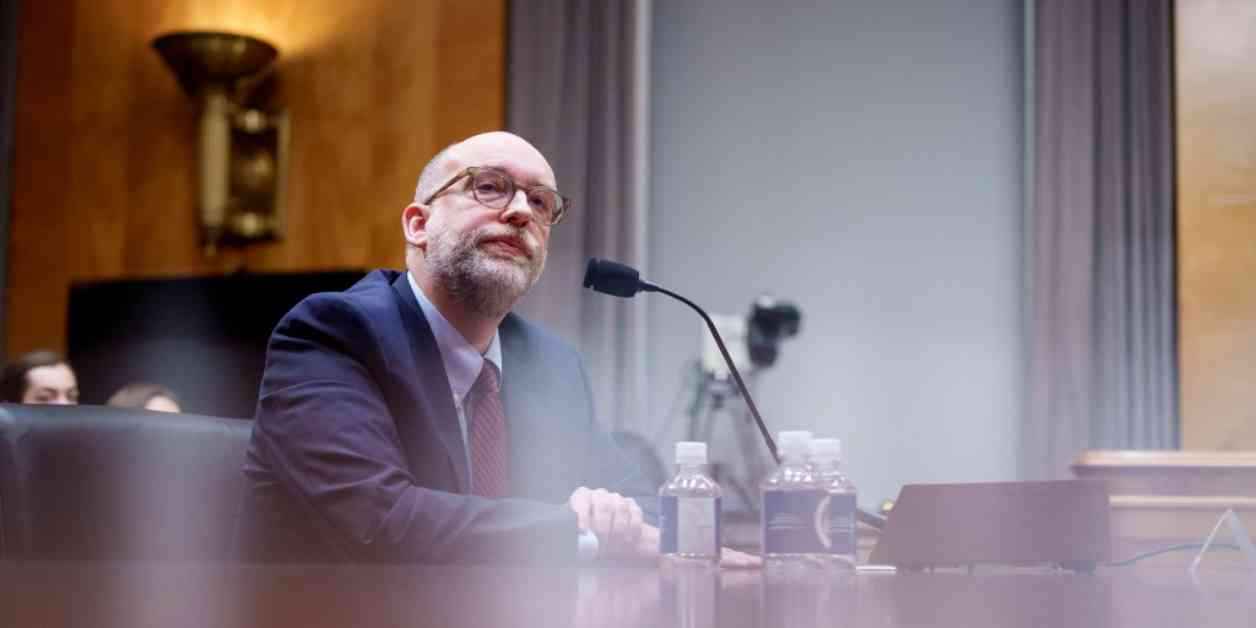In a surprising turn of events, the Office of Management and Budget Director, Russell Vought, has brought the Consumer Financial Protection Bureau (CFPB) to a standstill with a series of directives issued to employees. This directive, which was obtained by NBC News, effectively halts a significant portion of the bureau’s activities as Vought assumes the role of acting head.
Vought’s email to CFPB employees outlined a dozen directives that were to take effect immediately. These directives included orders to cease all supervision and examination activities, halt stakeholder engagement, pause ongoing investigations, refrain from issuing public communications, and suspend enforcement actions. Additionally, employees were instructed not to approve or issue any proposed rules or guidance, and to suspend the effective dates of all final rules that had been issued but not yet become effective.
The impact of these directives was further amplified by Vought’s decision to inform the Federal Reserve that the CFPB would not be drawing its next allocation of unappropriated funds, citing that it was not “reasonably necessary” for the bureau to carry out its duties. This move was met with backlash from various quarters, including Senator Elizabeth Warren, who accused Vought of giving big banks and corporations the green light to exploit families.
Amidst the chaos, a current CFPB employee likened the situation to President Donald Trump and Elon Musk, leading the Department of Government Efficiency, leaving American families vulnerable to financial abuse. The employee highlighted the crucial role of examiners in safeguarding individuals from scams and predatory lending practices, painting a grim picture of the repercussions of the directives.
Vought’s appointment as acting head of the CFPB comes on the heels of his confirmation as OMB director, a position that drew significant opposition from Senate Democrats. He replaces Treasury Secretary Scott Bessent, who was named acting head earlier, only to face accusations of implementing an illegal stop-work order. This change in leadership reflects Trump’s broader agenda of consolidating agencies in his second term.
The CFPB is not the only agency in the administration’s crosshairs, as Musk’s Department of Efficiency has targeted several others, including the U.S. Agency for International Development (USAID). Trump’s push to streamline government operations has led to a reduction in staff and a halt in aid programs at USAID, with Secretary of State Marco Rubio stepping in to take charge.
The CFPB’s fate was further sealed by Musk’s ominous post on social media, signaling the end of the bureau with a tombstone emoji. The subsequent disappearance of the CFPB’s social media account and website added to the sense of uncertainty surrounding the agency’s future.
As the Trump administration continues its efforts to reshape government agencies, the fate of the CFPB and other regulatory bodies remains uncertain. The ongoing battle over the bureau’s regulatory powers serves as a reminder of the broader struggle for consumer protection and corporate accountability in the aftermath of the Great Recession.
The repercussions of Vought’s directives and the broader implications for regulatory oversight and consumer protection are likely to reverberate across the financial sector and beyond, raising questions about the future of consumer rights and corporate accountability in the current political landscape.


